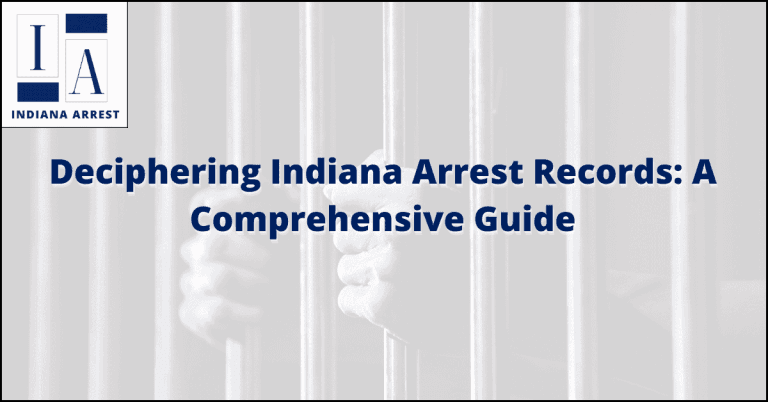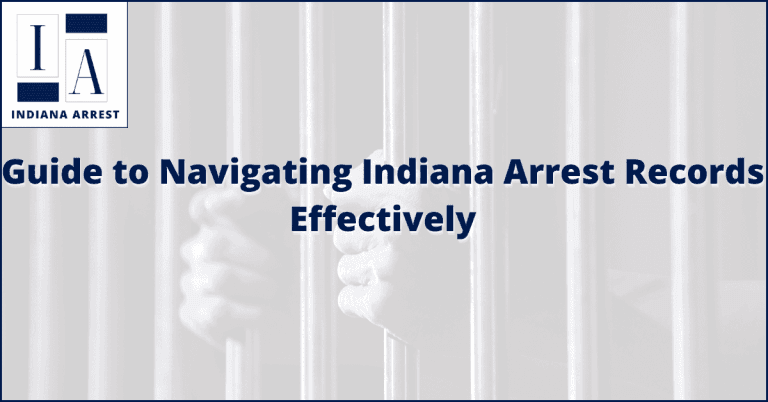Understanding Indiana Arrest Warrants: Key Insights
Arrest warrants play a pivotal role in the legal landscape, ensuring that law enforcement follows due process while apprehending individuals suspected of committing a crime. This comprehensive guide aims to shed light on the intricacies of Indiana arrest warrants, offering a thorough understanding of their issuance, execution, legal implications, and more.
Arrest warrants are legal documents granted by a court, giving law enforcement the authority to arrest an individual based on probable cause – a reasonable belief that the person has engaged in criminal activity. In Indiana, comprehending the nature of these warrants is essential for both residents and legal professionals.
What Are Indiana Arrest Warrants
An Indiana arrest warrant serves as official authorization for law enforcement to take an individual into custody. It’s issued by a judge after being presented with sufficient evidence that points to the person’s involvement in a crime.
Issuance and Legal Basis
Arrest warrants are initiated by law enforcement agencies and presented to a judge. To secure a warrant, law enforcement must demonstrate probable cause, providing convincing evidence that would lead a reasonable person to believe the suspect committed the crime.
Executing an Arrest Warrant
Executing a warrant involves locating the individual and taking them into custody. This process requires adherence to strict guidelines to protect the rights of the person being arrested.
Rights of Individuals with Arrest Warrants
Even with an arrest warrant, individuals retain certain rights. These include the right to remain silent and the right to legal representation.
Quashing and Recalling Warrants
If circumstances change or if it’s discovered that the warrant was issued in error, it can be quashed or recalled by the court.
Legal Implications and Consequences
Arrest warrants have lasting effects beyond the arrest itself. They can impact employment, travel, and future legal proceedings.
Common Misconceptions About Warrants
There are several misconceptions about arrest warrants. Clarifying these myths is essential to understanding the true nature of warrants and their implications.
FAQS
What is an arrest warrant in Indiana, and how is it issued?
An arrest warrant in Indiana is a legal document issued by a judge or magistrate that authorizes law enforcement to arrest an individual. The warrant is typically issued after a judge determines there is probable cause to believe the individual has committed a crime. This determination is usually based on evidence presented by law enforcement or a prosecutor. Once issued, the arrest warrant allows police to take the person into custody and bring them before the court to face charges.
How can someone find out if there is an arrest warrant for them in Indiana?
To find out if there is an arrest warrant for you in Indiana, you can check online databases, contact the local sheriff’s office, or consult with an attorney. Many Indiana counties provide online search tools on their sheriff’s or court websites, where you can enter your name and see if any warrants are outstanding. Additionally, you can call or visit the sheriff’s office in the county where you suspect the warrant might be issued. Consulting with a legal professional can also help you navigate the process and understand your options.
Can an arrest warrant be issued without evidence?
No, an arrest warrant necessitates probable cause, which is established through presenting evidence to a judge.
How long is an arrest warrant valid in Indiana?
Arrest warrants in Indiana do not have an expiration date. They remain valid until executed or quashed.
Can I be arrested outside of Indiana based on a local warrant?
Yes, Indiana arrest warrants can lead to arrest in another state due to extradition agreements.







